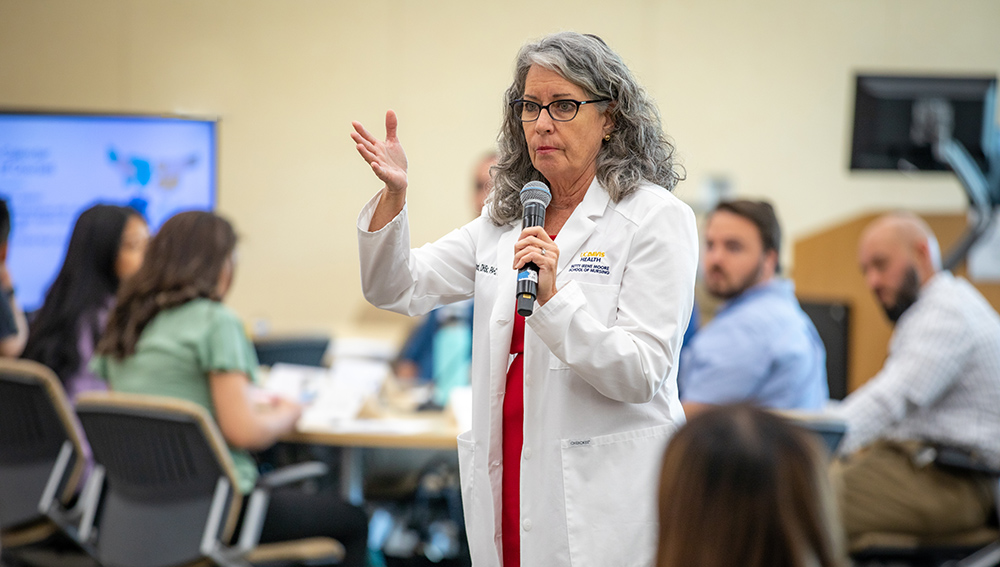The science of caring
Physician assistant program director blends love of curriculum with passion for teaching

Teresa Thetford, the physician assistant program director, welcomes new physician assistant students at the 2022 orientation.
An intrigue in science led Teresa Thetford to the physician assistant (P.A.) profession. A passion to prepare future providers landed her in academia.
Thetford began her career as a registered nurse. Realizing she wanted to have more decision making in the care of patients, she earned her P.A. degree and tacked on a nurse practitioner certification as well. Then, six-and-a-half years into her practice, she started teaching.
“Working as a P.A., I saw other clinicians who I thought were great scientists, but they forgot about the human side of caring for someone,” said Thetford, director for the P.A. program at the Betty Irene Moore School of Nursing at UC Davis. “I wanted to help the next generation to remember we aren’t just clinicians, we’re health care providers.”
Her love of both medicine and curriculum merged when she seized an opportunity to create from the ground up the first P.A. program in Orange County, California, at Marshall B. Ketchum University.
“I really thought about my own P.A. program, what helped me to be a strong clinician and what needed to be augmented,” she explained. “I then researched different programs and curriculums to strike the fine balance of the science and the caring.”
A self-professed curriculum “nerd,” Thetford repeated that success and launched her second program of physician assistant studies in the College of Health Professions at Sacred Heart University in Fairfield, Connecticut. Five years later, she returned to be with family in California and her new home at UC Davis. In 2022, she assumed the program director role.
As both a P.A. and a nurse practitioner, she adds unique perspectives and teaching to the family nurse practitioner and physician assistant programs. Her professional interests include primary care medicine, improving patient safety and health outcomes, interprofessional education and decreasing health disparities.
“I try to share with students enough of my past so that they understand some of the challenges one might come across during education and in clinic. That way, they can think about how they might manage that and build resilience,” she explained.
Thetford believes in lifelong learning, something she tapped into during the pandemic. The experience highlighted the value of health and how to not take it for granted.
“Professionally, we learned that we are stronger as a team and to work together for the best outcomes for our patients, ourselves and our communities,” she said.
Whether it’s working with patients in practice or with students in class, at the heart of all she does is keeping the care in health care.
“I want to advance our program so that our graduates can appreciate that their compassion is as important as their medical knowledge and skills and that providing health care is a privilege” she said. “If I’ve even touched a few lives, it’s worth it.”





